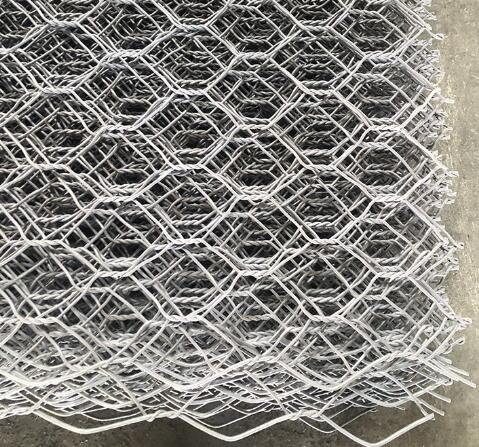Gabion walls are versatile and durable structures used in various civil engineering and landscaping applications, including retaining walls, erosion control, and landscaping features. One common question that arises during the planning and construction of gabion walls is whether they require a foundation. This article explores the factors influencing the need for foundations in gabion wall construction and discusses best practices for ensuring structural stability and longevity.

Gabion walls consist of wire mesh baskets filled with stone or rock fill material. These structures are designed to withstand hydraulic and environmental forces while providing stability, erosion control, and aesthetic appeal. The design and construction of gabion walls are influenced by factors such as soil conditions, slope stability, drainage, and site-specific requirements.
Before constructing a gabion wall, it is essential to conduct a thorough site assessment to evaluate soil conditions and site characteristics. Soil testing can help determine soil type, bearing capacity, and potential for settlement, which are crucial factors in determining the need for a foundation. In areas with unstable or soft soils, a foundation may be necessary to provide additional support and prevent settlement or tilting of the gabion wall.
Slope stability is another important consideration when determining the need for a foundation in gabion wall construction. Gabion walls are often used for slope stabilization and erosion control on steep slopes or hillsides. In such cases, a foundation may be required to anchor the gabion wall and prevent slippage or failure due to gravitational forces. Additionally, proper drainage measures should be incorporated to prevent water buildup behind the gabion wall, which can increase hydrostatic pressure and compromise stability.
The height of the gabion wall and the magnitude of the loads it will be subjected to are significant factors in determining the need for a foundation. Taller gabion walls or walls supporting heavy loads may require a reinforced concrete foundation or footing to distribute the loads evenly and provide stability. Engineering calculations and structural analysis should be conducted to assess the load-bearing capacity of the foundation and ensure that it can withstand the forces exerted by the gabion wall.
Several foundation options are available for gabion walls, depending on site conditions, design requirements, and budget considerations. Common foundation types include shallow spread footings, reinforced concrete strip footings, and piled foundations. The choice of foundation type will depend on factors such as soil bearing capacity, slope stability, wall height, and load requirements.
Regardless of whether a foundation is required, there are several best practices to follow during gabion wall construction to ensure structural stability and longevity. These include proper site preparation, compaction of the foundation soil, careful placement and alignment of gabion baskets, adequate drainage provisions, and regular maintenance and inspection.
In conclusion, the need for a foundation in gabion wall construction depends on various factors, including soil conditions, slope stability, wall height, and load requirements. While some gabion walls may be constructed without a foundation, others may require a reinforced concrete footing or other foundation systems to provide adequate support and stability. Proper site assessment, engineering analysis, and adherence to best practices are essential for ensuring the structural integrity and longevity of gabion walls.
For more information on gabion walls or to inquire about suppliers of gabion materials and components, please don't hesitate to contact us.